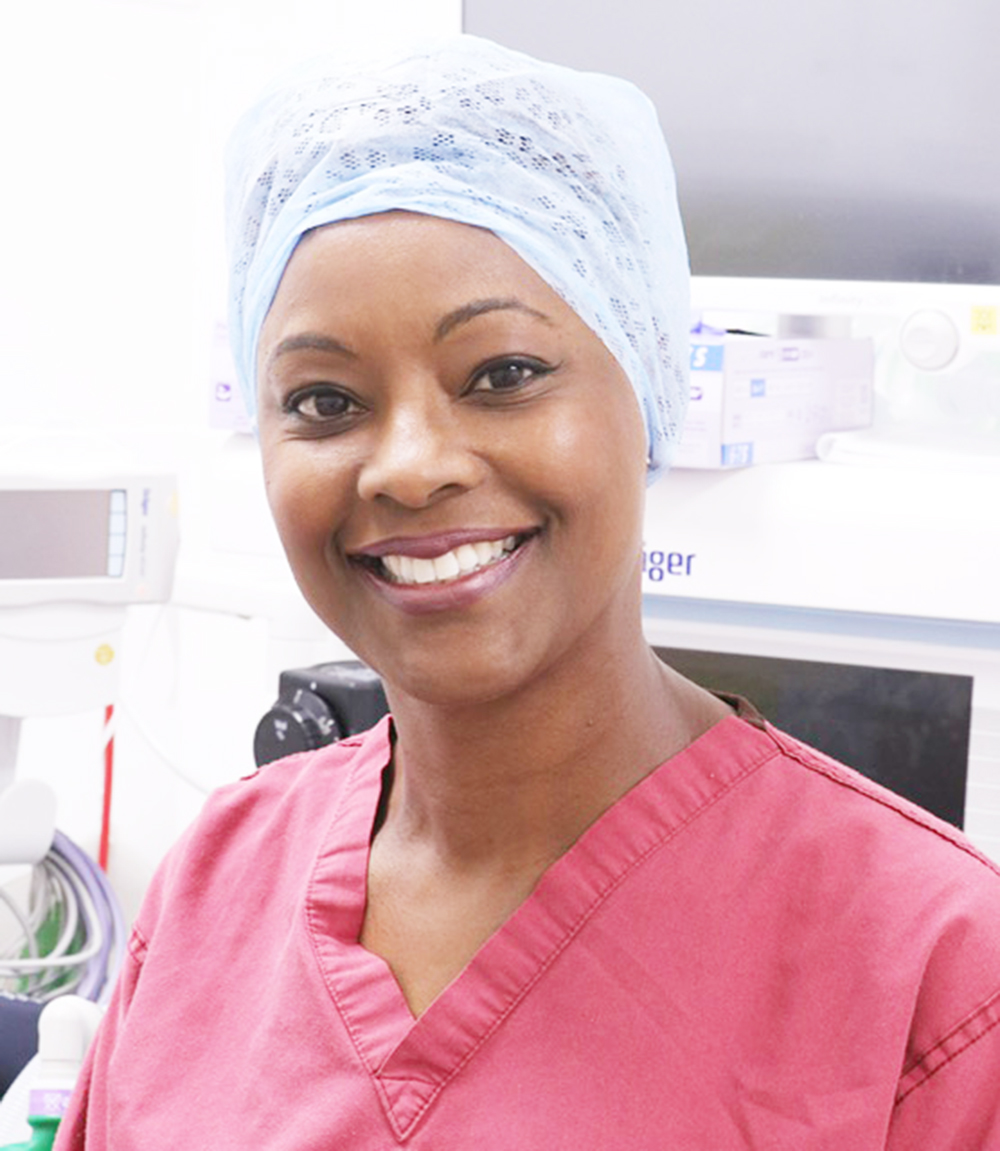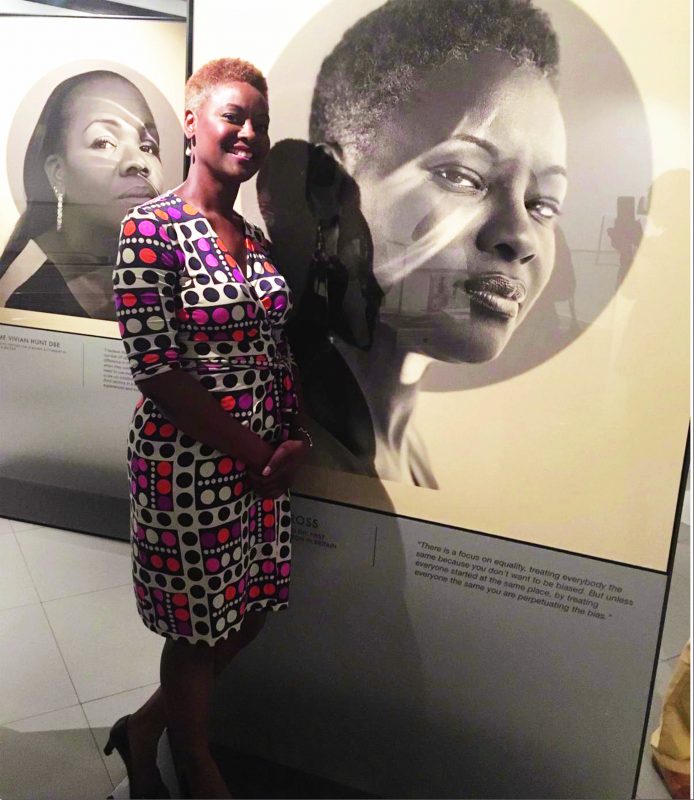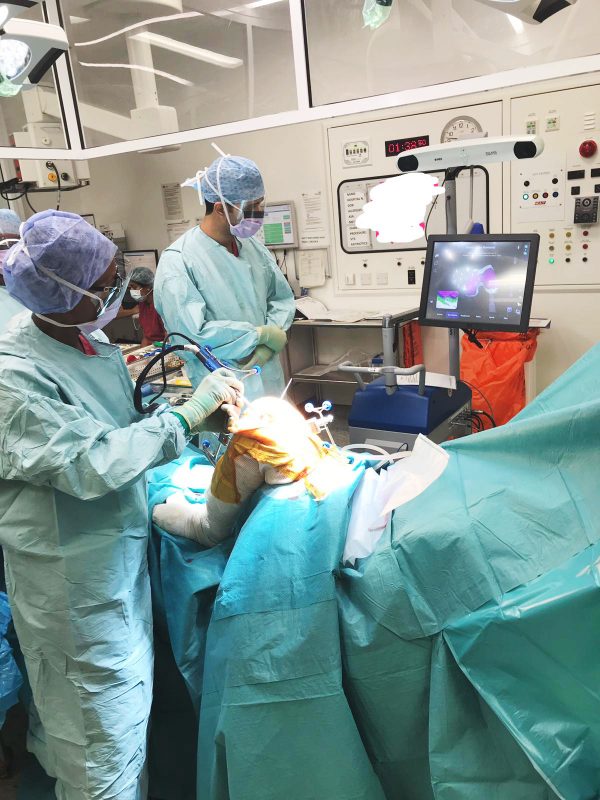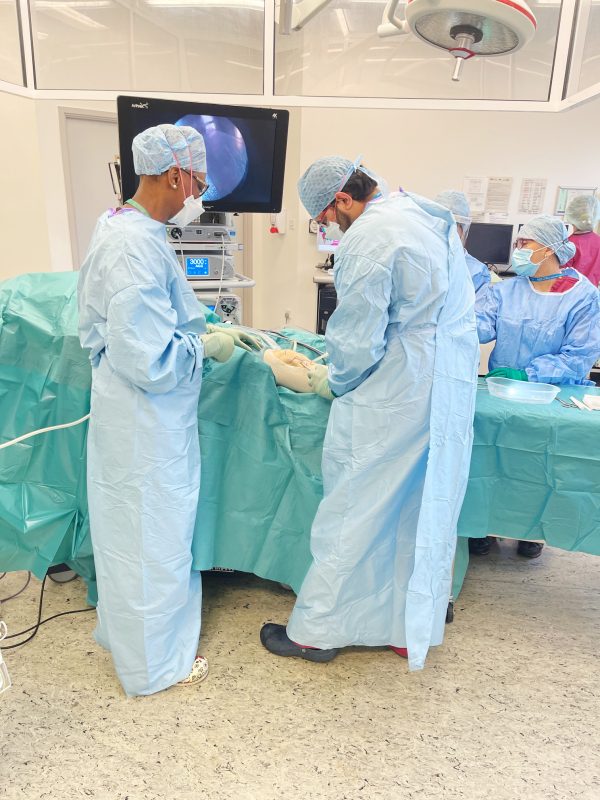When Samantha Tross became the first female black orthopaedic surgeon in the United Kingdom, this was not a feat she was aiming at; she just had her mind set on specialising in a medical field that gives her almost instant work satisfaction.
Reflecting, she believes that she might have hesitated had she known what she would have conquered because she is quite aware of the huge responsibility she now has on her shoulders as she is now part of the process of paving the road for others to tread.
“I see it as an immense responsibility because you know when there is no one else people are looking at how you are carrying yourself and performing and that can inform whether they will bring others into the training programme. So for me it was a tremendous responsibility and so I am glad I wasn’t aware there weren’t any before I got into it because that would have been daunting. But I didn’t know. I just went for what I wanted,” Dr Tross said in a recent interview with this newspaper.
She worked very hard and was very enthusiastic, but she believes there was “a little luck involved” and her mentors and others saw something in her and pushed her. Dr Tross is also among just a handful of women consultant surgeons in that country and probably worldwide as well. In fact, when she became a surgeon, women made up only 3% of the field and some 17 years later that has only increased to 6%.
While she accepts that it is indeed a physical specialty, hence the reason it is male dominated, Dr Tross pointed out that there are now power tools and there is no reason why women should not be part of what is a “fantasticspecialty”. As a result her real drive currently is being involved in increasing the diversity in the specialty. She is known for her work with hip and knee surgery, but also does surgeries of the shoulder, hand, foot and ankle.
The 54-year-old is a Guyanese by birth. She attended St Gabriel’s Primary School and secured a place at Queen’s College but left for England before she had the opportunity to be outfitted in the coveted uniform. Though she never set foot in Queen’s College she still sees herself as a “QC girl at heart”, she said. Dr Tross has been included in the annual Black Powerlist of the 100 most influential Black Britons for more than 10 years.
Achieving her dream to become a surgeon was not an easy road as Dr Tross shared with Stabroek Weekend that initially she had failed her final certifying examination, and this made her question her ability and she became depressed. But she quickly rebounded and was successful three months later and has not looked back since. When she entered the field, Dr Tross said, as a woman, she had to be resilient and independent as she had to deal with sexism and racism.
During her training, Dr Tross said, as she rotated through various specialties, she once thought she wanted to be a psychiatrist as she enjoyed that field. She also toyed with becoming a cardiologist but in the end surgeon was it.
For her, the field involves a definite action and outcome as opposed to other areas of medicine where patients are treated and given medication.
“With surgery, I could see someone, do a procedure and the patient benefits. And why I chose orthopaedics is because patients are generally well, you know, [with] general surgery … its more life-threatening illnesses… This is more an injured body part, but it could be a well patient. And in my subspecialty, patients get well very quickly. I knew very well I didn’t like chronicity so I would do a hip replacement and the patient goes home the next day or in a couple days,” she expounded.
The spectrum of the specialty also motivated her and then the first woman surgeon she encountered was an orthopaedist, so there again she was inspired. The icing on the cake, if she needed it, was that of all the surgical specialties, they were the “nicest to me,” she said. Thus she learnt the importance of engaging with medical students as it can influence the career they eventually choose.
Another important consideration for Dr Tross was that most of the surgeries can be done in daylight hours and as a result there is no need for her to be on call
during the night unless she is attached to a trauma centre. While she did not end up having a family, it was among the considerations she had at the time.
Never wavered
Though not sure of what motivated her to pursue a medical career, she said it might have been the deaths of her grandmother and aunt, who died at home. However, she has been told that since she was around seven years old she declared that she would be a surgeon and apparently never wavered from this.
“I can’t imagine where that came from. I mean was a very avid reader and maybe I read something in a book. My mom obviously was a nurse and I would have visited her in the hospitals, and I am sure that would have had some influence,” she said.
Dr Tross is one of four children born to Samuel and Gwendolin Tross; her mother has also worked in nursing education for many years in the United Kingdom and in Guyana.
It was Samuel Tross acquiring a job with the Commonwealth Secretariat in Zambia that resulted in Dr Tross and her siblings being placed in boarding school in England.
She recalled that it was a rough journey being in a new country, new culture and being away from her parents; it was a fairly traumatic experience, but she said there were positives as well.
“I had to learn to be resilient. I had to be independent and obviously learn to get on with others, new culture meeting new people and so on. And those are the very skills that helped me in the rest of the career. So at the time you think it was a hardship, but you never know where these things could be helpful later on in life,” she said.
Following boarding school she went to Sixth Form College and prepared for medical school. She also worked in the psychiatric hospital as she prepared for her medical career since she had to show that she was really interested in medicine.
She secured a spot at University College, London one of the top universities and loved the experience. One of the subject areas she studied was anatomy and that further consolidated the idea that surgery was for her. During her training she also spent time doing neurosurgery, vascular surgery, plastic surgery and general surgery before she chose orthopaedics.
In England, medical training takes six years, but Dr Tross completed it in five. Looking back, she believes the sixth year would have been very beneficial and she now encourages students to take that time. That extra year could be spent doing needed research. Following medical school she was what was known then as a house officer but is now known as a foundation doctor and spent six months in medical specialty and another six in surgical specialty. Another six months were spent in different surgical specialties and during the training time three examinations were written.
Bottleneck
Dr Tross said she experienced a bottleneck when was getting serious in the surgical programme and the men were not particularly keen on having a woman there. She wanted to do part of her training in London, which proved very difficult but with advice she ensured that she networked and through her tenacity she got onto the rotation in the city she desired.
It was the third examination where Dr Tross was unsuccessful, and she recalled that it was “devastating”. In fact, going to university was a bit of shocker for her as while she was always accustomed to being at the top of her class, that was not the case at university.
For her “failure was a no no” and as she remembered the days after she failed Dr Tross said, “Honestly I felt awful. I felt as though my life could have ended. It was so crazy that you would make it so important in your life”.
She regrouped once she realised that she failed herself because she did not believe in herself ,owing to the constant aggression she was getting in the programme.
“You find that when you are in a minority, it is easy to spot your mistakes and the mistakes were always exaggerated so they kept repeating them all the time and I started to feel like I wasn’t good enough…,” she said, adding that the experience was mainly positive but one negative comment can be far more negative than all the positives.
There was another exam three months later and she passed it and went off on fellowships in Canada and then Australia for six-month periods. She then got a job as a locum (temporary) consultant and three months into this a substantive job came up and she was successful.
Dr Tross has been a specialist for the past 17 years and she has been attached to the Ealing Hospital, which over the years was merged into what is now known as the London Northwest University Health Care NHS Trust. Under the trust, one hospital is designated to conduct all the elective surgeries and then there are two trauma centres. Each consultant has to work on two sites a week.
Over the years, she was the head of the department and she had to navigate this through the merger coupled with COVID-19 and she found that it was exhausting mentally.
That and the fact that her parents, who reside in Guyana, are getting older saw Dr Tross take a year’s sabbatical to recharge and spend time with love ones; she is already feeling better. She returns to the United Kingdom today where she will complete surgeries booked to the end of July in her private practice.
“I have to decide if I go back, but what I do know if I do go back I would not go back full time. I am in a different phase now and I may want to do more part time…,” she shared.
Dr Tross said though that she “absolutely” loves her career and she feels blessed to have a significant impact on someone’s life and in such a short space of time. “I find it stimulating, rewarding, all those things… It is a great specialty and I would like to see it open up to more women,” she said.
Locally, she was involved with the diploma in orthopaedic training programme along with two other surgeons in the UK; they lecture in the programme virtually. They are looking to expand the programme and have the surgeons go to England to see surgeries they are not able to see here because of the lack of equipment. In Guyana, the joint replacement programme is still in its infancy stage.
Dr Tross said she was very impressed with Dr Kalesh Ramcharran, who is attached to Georgetown Public Hospital, and with whom she did some surgeries; she hopes it is the start of many such initiatives.








